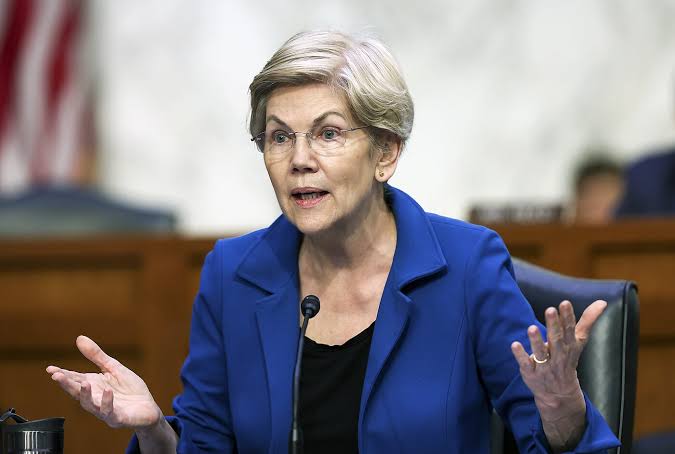
Cryptocurrency
How Warren’s Bill Failed to Stop Crypto Terrorism Funding

iexclusivenews – Senator Elizabeth Warren has introduced a bill that aims to curb the use of cryptocurrencies for financing terrorist groups.
However, a US lawmaker and some crypto experts have pointed out the flaws and limitations of her proposal.

The Bill’s Main Idea
The bill, called the Digital Asset Anti-Money Laundering Act, would amend the Bank Secrecy Act to impose new rules on crypto service providers.
These include miners and validators, who are responsible for creating and verifying new blocks on the blockchain.
The bill would require them to comply with anti-money laundering and counter-terrorism financing regulations, such as verifying the identity of their customers and reporting suspicious transactions.

The Bill’s Criticism
However, not everyone agrees that the bill would achieve its intended goal. Representative French Hill, who leads the House Financial Services Subcommittee on Digital Assets, Financial Technology and Inclusion, questioned the bill’s effectiveness in a hearing on Feb. 15.
He argued that miners and validators have no control over who uses their services, and that most of the illicit activity in crypto happens through centralized platforms, not decentralized ones.
READ MORE:
How Hong Kong Influencers Were ‘Arrested for Cryptocurrency Fraud’
How Hong Kong Influencers Were ‘Arrested for Cryptocurrency Fraud’
Michael Mosier, a co-founder of Arktouros and a former head of the Financial Crimes Enforcement Network, supported Hill’s view.
He explained that miners and validators are like internet service providers, who simply process data without knowing the content or the sender.
He said that there is no customer relationship between them and the users of the blockchain, and that imposing new regulations on them would not stop terrorist financing in crypto.
The Broader Context
The hearing was the second one in four months that focused on the illicit uses of cryptocurrency, especially for funding terrorism.
The issue gained more attention after the Oct. 7 attack by Hamas on Israel, which was allegedly financed by crypto donations.
Some lawmakers, including Senator Warren, have called for more action to prevent such incidents from happening again.
However, the data shows that the overall volume of crypto transactions related to illicit activities has declined significantly in the past year.
According to Chainalysis, a blockchain analysis firm, the amount of crypto involved in illicit activities dropped from $31.5 billion in 2022 to $22.2 billion in 2023, a decrease of more than 29%.
This suggests that crypto is not the main source of funding for terrorist groups, and that other factors, such as geopolitical tensions, play a bigger role.
The Future of Crypto Regulation
The bill by Senator Warren is one of the many attempts to regulate the crypto space in the US.
However, it faces uncertainty and opposition from both the crypto industry and some lawmakers.
Representative Patrick McHenry, who chairs the House Financial Services Committee, has announced that he will not seek reelection in 2024, which could change the balance of power and influence in the committee.
The outcome of the 2024 election could also have a major impact on the future of crypto regulation in the US.













